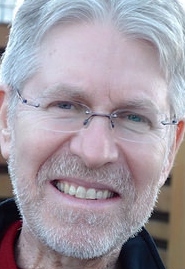Grief Workshop
Led By Jon Terrell, M.A.
For Upcoming Dates Click Here

We offer small group grief workshops in New England several times each year. These are intensive three to four day residential events for people who are stuck in emotional pain due to a major loss. Our location is in western Massachusetts.
We also lead winter retreats in Orlando, Florida, most years and occasionally in southern California.
I've been leading these workshops/retreats for over twenty years. Hundreds of people have attended to find relief from emotional pain.
Our unique approach to dealing with grief helps participants let go of the emotional pain and turmoil they are stuck in. What makes our work unique is that the focus is on emotions, not thoughts, as we are stuck not in our heads but in our feelings. Most other approaches to healing grief are primarily focused on managing thoughts.
Many of us need help navigating the territory of feelings. We react to events with emotions such as grief, anger, and fear, but often, we get caught up in the feelings. They take over, and we are at their mercy.
Significant losses, such as those of a child, a parent, a husband or wife, a relative, or a pet, can keep us in turmoil.
Our New England grief workshops help people reconnect with all their resources for healing in the present. They are designed to help people work through their uncomfortable emotions..
Of all the feelings, grief takes the longest to heal. And with a significant loss, we are never done with healing. What happens, though, as we work with our grief is that grief gradually turns into a stronger sense of love.
Participants report opening to deep peace, relief, and a renewed sense of joy. You can read about past retreatants' experiences here.
Often, other feelings, sometimes unexpected, come up to the surface as we work with our grief.
Many people who are stuck in grief find themselves caught in repetitive thinking. Their thoughts can go around and around, and they are trapped in a cycle of thoughts without changing the feelings underneath.
It can be hard to break that cycle of thinking. Seeking help from sources that provide more thoughts can be somewhat helpful as long as we can go deeper into our sadness and other feelings.
Grief support groups, psychotherapy, retreats, and workshops can be helpful. Talking about our grief can help our understanding of our pain, and for some, that is all that is needed.
While we do discuss grief at our grief workshops, most of our work is radically different: We primarily focus on working through the feelings tied into these thoughts. Read on to learn more about our approach.
Working Through Feelings
 Hand Holding Heart
Hand Holding HeartGrief is a feeling, not a thought, although we all have thoughts related to our grief feelings. But we are primarily stuck in our feelings, not our thoughts.
Thoughts can be a gateway into feelings, but for many, just talking about emotional pain does not alleviate it...we need to go deeper. We need to experience our feelings...the feeling of deep sadness, the tears and pain.
Most of us don't know how to do this or do this in a way where we are not drowning in the feelings. Our grief workshops are designed to help people feel their pain in a safe, supportive way. In this way, the feelings can evolve.
Elizabeth Kubler-Ross called this "externalizing feelings." Feelings can evolve once we've expressed our emotional pain, whether it is grief, anger, fear, or another feeling.
It changes, and we change. We grow as we feel our feelings. We return to the present moment with more capacity to feel and live.
We suppress our emotions because they are uncomfortable, especially to our brains and our sense of self.
Our brains don't understand emotions. Our brains can hold facts about emotions/feelings, but feelings are deeper than thoughts. That's why talking about feelings can be helpful but has limited value.
At our grief workshops in New England, this becomes obvious as participants' deep emotional pain is felt and then gradually changes.
Our brains register feelings but don't know how to deal with them. At our retreats, we can help people heal from grief because we go much deeper than the thoughts in our brains.
Feelings are in the Body
Our grief workshops help people go into the old feelings by going into the body. That is where we hold our feelings...in our hearts, muscles, digestive areas, etc. These "gut feelings" are where we need to go.
We hold fear in our nervous system, anger in our muscles, and grief in our digestive areas. Each of these core feelings operate differently....fear contracts us and squeezes us smaller. We get tighter and want to hide, disappear, or run. We can go into a "freeze" state, where thinking or functioning is hard.
Complicated grief is grief that continues and doesn't seem to heal over time. It is often caused by other feelings, such as anger, resentment, or anxiety, that we are holding onto below the grief or mixed in with our grief.
Our grief workshops in New England focus on the wisdom within your body. Our bodies know how to heal emotions. Feelings are natural. And we've had them all of our lives.
When a baby is sad, they cry. When a toddler is upset and angry, they naturally expresses anger. When something scary happens, babies and children express fear.
At least until a parent stops these natural feelings or makes a child feel shameful for them.
All these feelings are natural, and we naturally know how to deal with them: crying, yelling, shaking, etc.
But too often, parents cut off that natural expression, and the baby or child learns to suppress or even to feel shame about certain natural feelings.
Later on, as we grow up, we have difficulty feeling our feelings.
These other feelings often surface as a person delves into their experience of grief. At our grief workshops, participants understand this process through reflection on their past and through direct experience in reclaiming parts of themselves that had been rejected.
Young Children Naturally Express Their Feelings

When we were babies, we cried when we were sad, pushed and kicked when we were angry, and made high-pitched sounds. and shivered when we were afraid. We naturally felt our feelings and didn't hide from them or hold them in our bodies unless there was severe trauma. We experienced them and let them go.
But as we grew up early on, we learned to push these feelings down into our bodies...we tried to become good little boys and girls by suppressing feelings that we felt and thought our parents disapproved of.
For example, if we didn't want to be a "crybaby," we suppressed our grief.
Later, we had difficulty accessing those feelings. As Joy Davey, one of my teachers at Shalom Mountain Retreat Center, once said, "We become the perfect person to please everyone else, but we have lost ourselves."
The grief workshop can help us find ourselves again by teaching us to reclaim our feelings--not just grief, but all of them.
We come alive again!
Find Out More About Our Grief Workshops In New England
Here is a link to our main retreat page, with dates and costs for the upcoming events in New England and beyond. I do require a free 20-30-minute phone call to ensure that the retreat is appropriate for you. (This is not a counseling session but a time to ask questions about whether the workshop is for you.)
Use the link below to set up a call. I will get back to you within 24 hours unless I am leading a workshop.

Jon Terrell, M.A., has led workshops and retreats in New England, Florida, and California for over twenty years. He specializes in helping people in emotional pain, especially grief.
He is also the founder of Advanced Meditation, a method of personal awakening. For Jon's full bio, click here.
